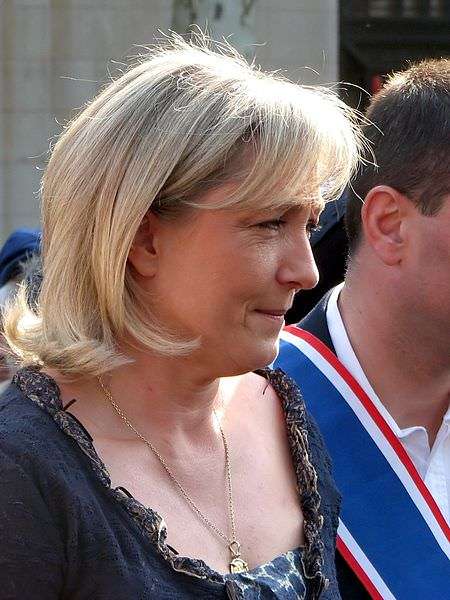French Xenophobic Nationalists Make Gains in Local Elections

Yesterday the French voted in the first round of local elections, and the results are not good for the Socialist party and its allies, who according to preliminary results received only 38 percent of the vote. The largest center-right opposition group, the Union for a Popular Movement (UMP) and its allies received 47 percent of the vote. There was a record low turnout at these elections, with only 38 percent of those eligible to vote showing up at the polls.
The far-right nationalist, anti-immigration, and anti-European Union party the National Front (FN) did much better this year than it did in the first round of previous municipal elections, having received five percent this year compared to 0.9 percent in the first round of elections in 2008.
As Agence France-Presse notes, the results put the National Front in a good position ahead of the second round of voting, scheduled for March 30:
Although the FN had been expected to do well, the first round results were far better than expected.
Far-right candidates came ahead in several key towns and cities that will put them in pole position in the second round on March 30.
In the former coal-mining town of Henin-Beaumont in northern France, Steeve Briois went a step further and achieved 50.3 percent, an absolute majority which made him the outright winner and mayor.
Under municipal election rules in France, any candidate who gets more than 50 percent is declared the winner and there is no need for a second round.
Although headlines speak of the French far-right triumphing, making "historic" and "big" gains, and relishing "election breakthrough" it is worth remembering that while the National Front may have greatly increased its performance compared with the first round of voting in 2008, its total support in yesterday's elections was only five percent and it only put forward candidates in roughly 600 of about 36,000 constituencies.
What will really indicate the level of support enjoyed by the National Front is what happens in the second round of voting. Some voters may have supported the National Front in the first round of voting in order to alert sitting politicians to their dissatisfaction with the far from ideal state of the French economy but don't intend to support the National Front in the second round. The Socialist Prime Minister Jean-Marc Ayrault said that "the National Front is in a situation where it could win the second round, all democratic and republican forces have the responsibility to create the conditions to stop it from doing so." The leader of the UMP party urged those who voted for the National Front to vote for his party instead.


Show Comments (104)